How To Choose The Correct Pond Pump
Choosing a pump for your pond or fountain is a crucial step to ensure you maintain proper water movement. Failure to keep the water adequately circulated can result in stagnation, algae buildup, and mosquitoes. In addition, if you have fish, plants, or other aquatic life in your pond, you must keep the water healthy by evenly distributing the oxygen levels and other nutrients.
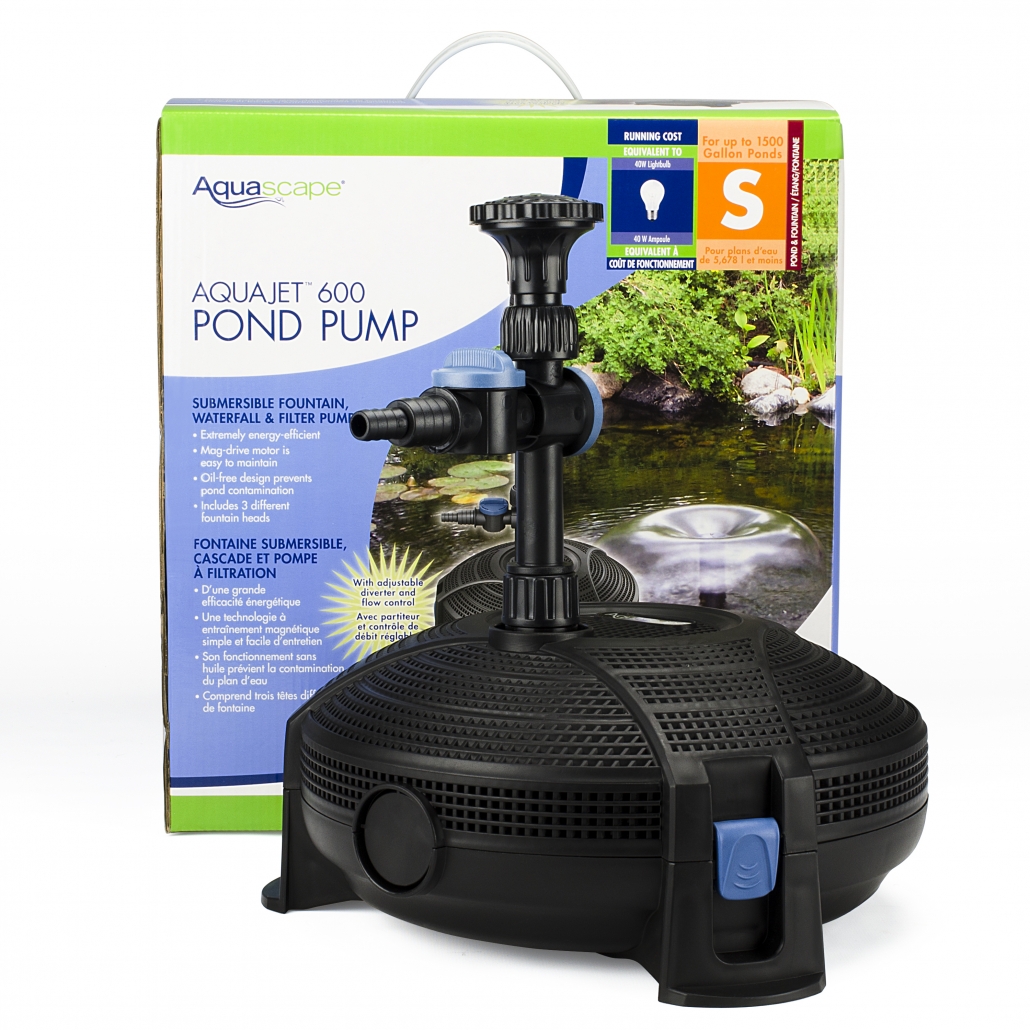
Types of Pond Water Pumps
There are two main types of pond water pumps: submersible and external (out-of-pond), also known as centrifugal pumps. Depending on the application, each pump offers specific advantages.
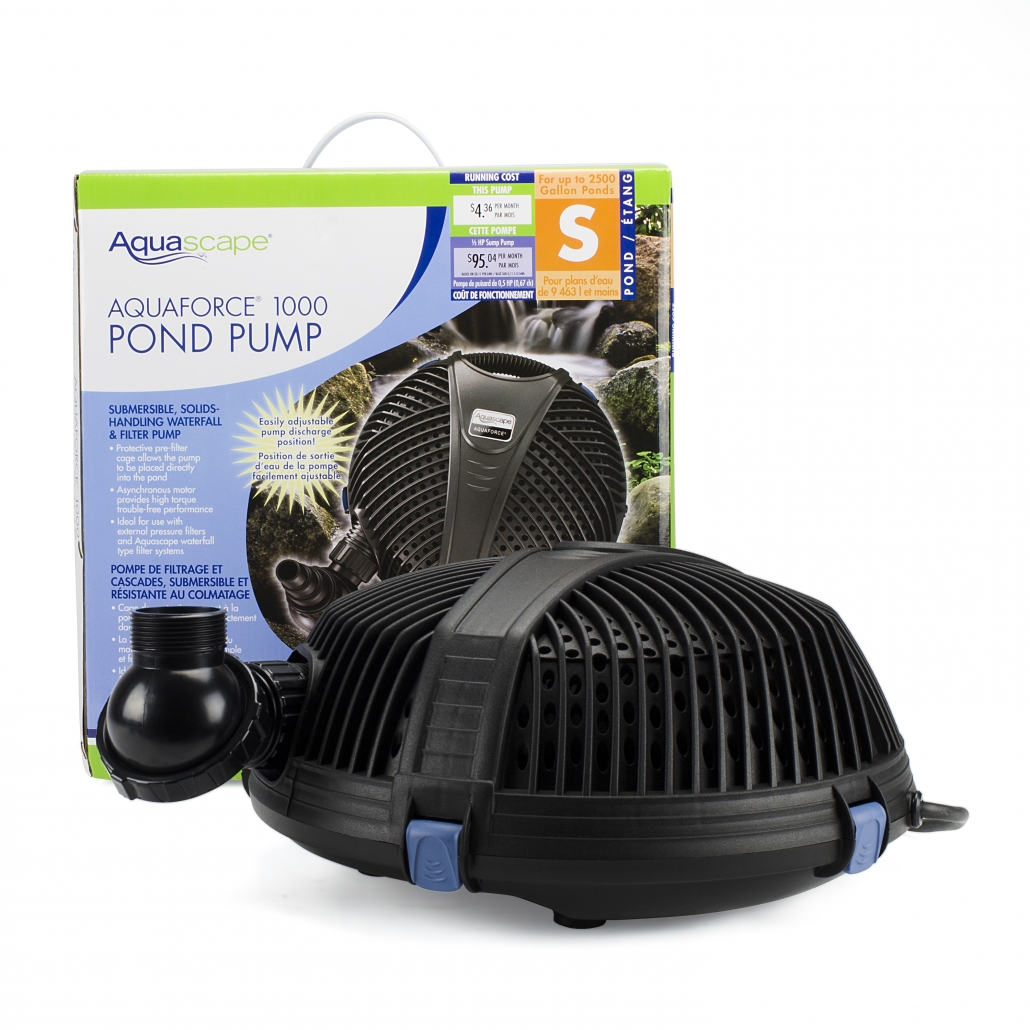
Submersible Pond Pumps
Submersible pumps are designed to be fully submerged underwater at the deepest part of the pond. They are placed directly into your pond or in a skimmer box or pond vault. Submersible pumps range in size from 50 to 5,000 gallons per hour. They are easy to install and are sometimes a more economical solution for smaller ponds (up to 1000 gallons of water). They are also quiet and can also be used to drain your pond. If you have fish or other aquatic life in your pond, you may want to consider a model that does not use oil because there is a danger of the pump seal breaking and oil coolant leaking into the water.
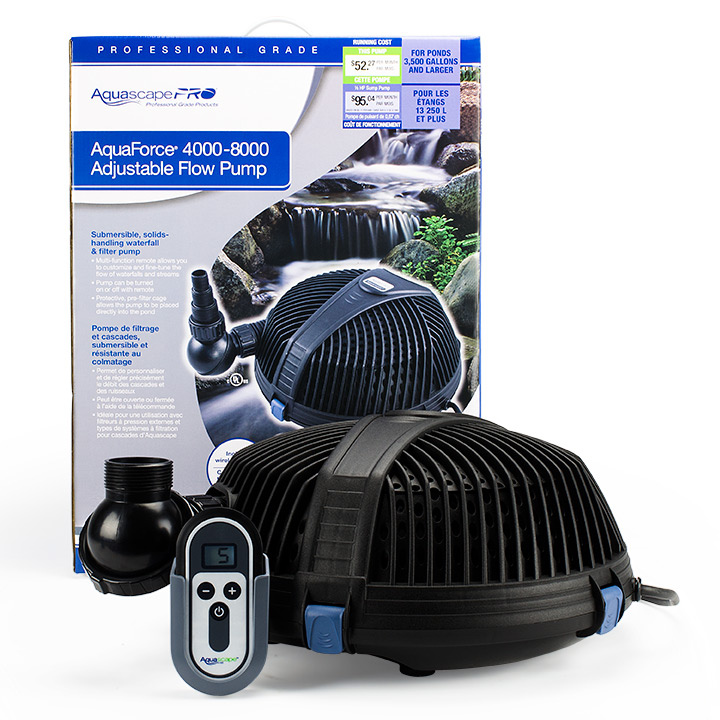
Centrifugal Pond Pumps
External or centrifugal pond pumps are a reliable, energy-efficient option. They are installed in a dry location near your pond. External pond water pumps are suitable for larger ponds (over 1000 gallons). Compared to a submersible pump, they are typically louder and more complicated to install; however, they are easier to maintain.
When selecting a pond pump, it’s essential to keep in mind that pumps have different cord lengths. Ensure the cord is long enough to go through the pond and plugin far away from the water. Some electrical codes specify that the outlet for water features must be at least 6 feet away from the water. Therefore, it is recommended that you avoid using an extension cord. However, if you must use one, make sure it’s suitable for outdoor use and plugged into a ground fault circuit interrupter (GFCI) so that it will immediately shut off if there is an overload.
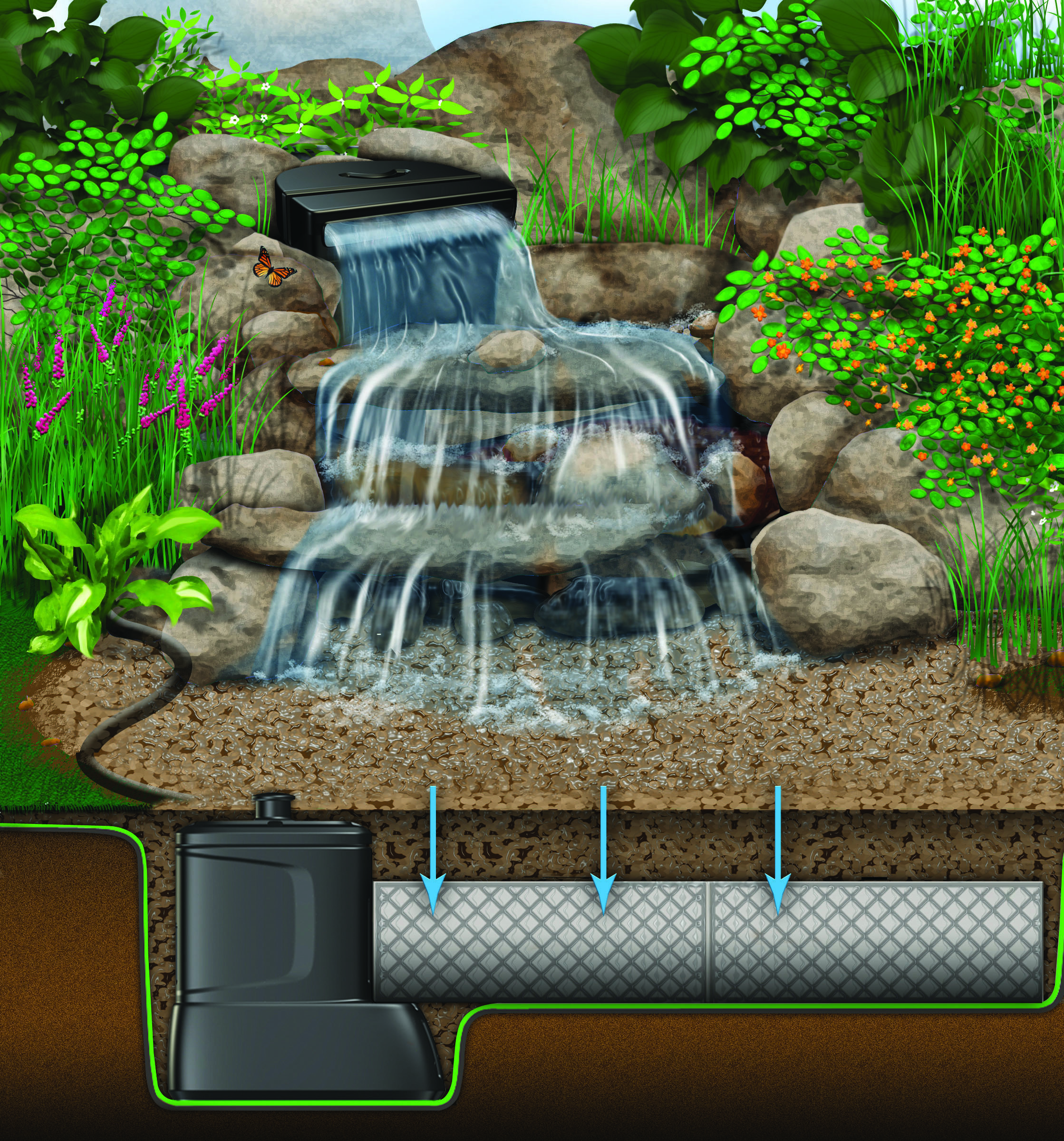
How to Size a Fountain or Pond Pump
Pond pumps are sized by gallons per hour (GPH) at one foot of lift or height. Larger capacity pumps are rated by horsepower (HP). To determine the size pond pump, first, you need to calculate the volume of water in the pond. To calculate the volume of water in gallons, multiply the length x width x average depth x 7.5.

Water Circulation Factors
It is recommended that pond water is circulated at least once per hour. For example, if you have a 500-gallon pond, you need a pump that runs 500 gallons per hour at the discharge height. If your pond has a pressurized filter, you ideally want to turn the water approximately once every two hours. For example, if you have a 1000 gallon pond, you need a pond pump rated at a minimum of 500 GPH. If your pond has a skimmer or waterfall, the water should be turned approximately once every hour. Therefore, if you have an 1800 gallon pond, you will need an 1800 GPH rated pump.

Calculating Head and Lift Height
Two of the most critical measurements in sizing a pond or fountain pump are the maximum head height rating and maximum lift. Head height means the vertical height the pump raises water above the surface of the pond. The pond fountain pump’s top height can lift the water to is called “Maximum Head” or “Max Head.” The “Head” is measured straight up from the water level of the pond. Its length then measures any horizontal/diagonal flow, and 1′ of “Head” added per 10′ of horizontal/diagonal distance. To calculate the lift, you need to measure how far the water in your fountain has to travel from the pump’s location in your rush to the top of the fountain where the water comes out. Then you need to select a pump that lifts higher than that measurement. For example, if that distance is 24”, than you will need a fountain pump that lifts at least 36” tall. The “maximum lift” is the maximum height that the pump will raise the water.
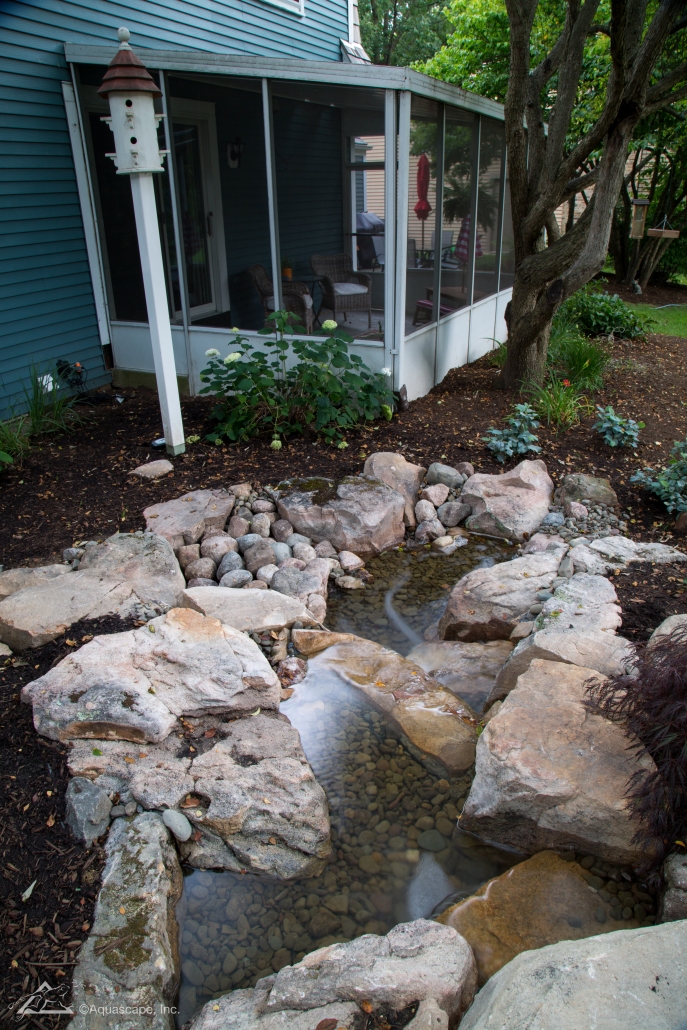
Selecting the Proper Pond Water Pump Tubing
It is also essential to use the correct tubing size because it directly affects the pond pump‘s maximum lift capability. If you use smaller tubing than specified, you will limit the pump’s maximum lift and the amount of water circulated.
Choosing the right pond water pump for your pond or fountain requires careful consideration and a little upfront research. However, doing so will go a long way toward keeping your water clean and healthy and your pump operating efficiently.

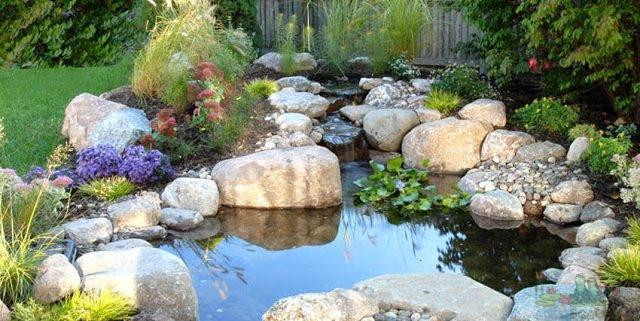 Meyer Aquascapes
Meyer Aquascapes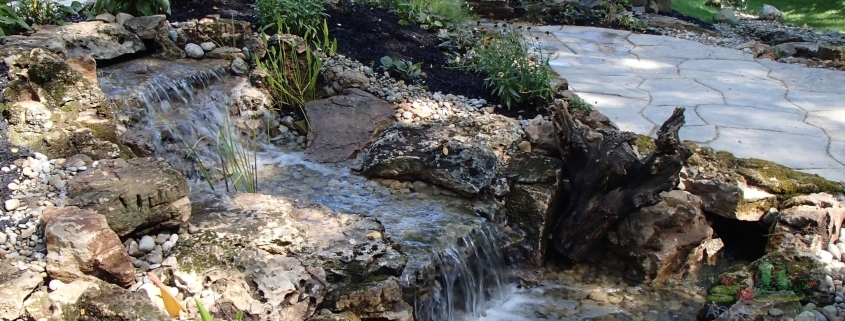 Meyer Aquascapes
Meyer Aquascapes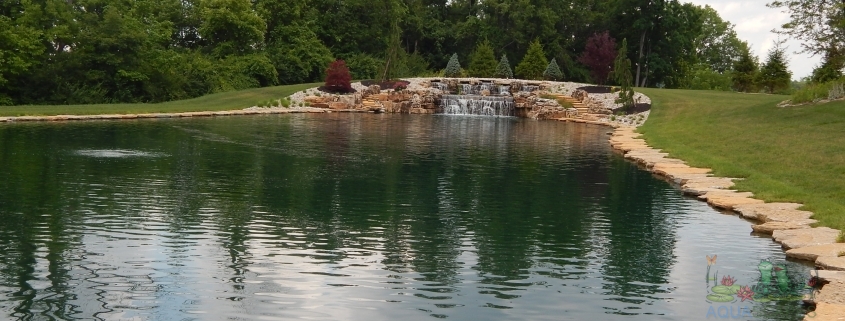 Meyer Aquascapes
Meyer Aquascapes
